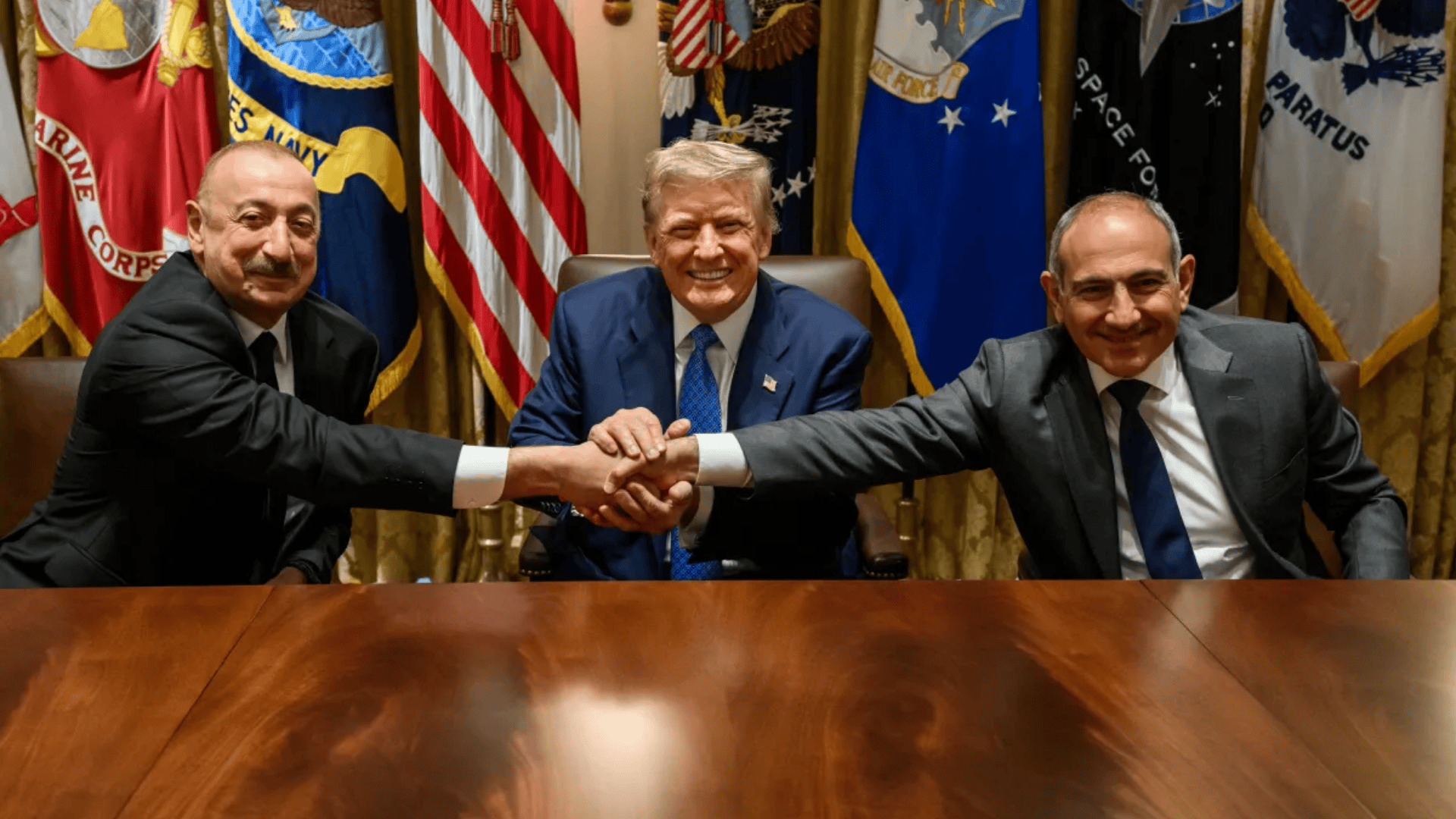PEACE Act or “Armenian lobby”? A bill has been introduced to US Congress to sanction Azerbaijan if it attacks Armenia
PEACE Act Sanctions against Azerbaijan
On September 30, Republican Congressmen Darrell Issa and Gus Bilirakis introduced the PEACE Act (H.R.5632) to the U.S. House of Representatives. The bill provides for the imposition of sanctions in the event of military aggression by Azerbaijan against Armenia and declares its goal as “expelling malign Russian influence from Armenia.”
The full title of the bill is “Preventing Escalation and Advancing Caucasus Engagement Act.”
The Azerbaijani authorities have not yet commented on the bill. However, media outlets and public figures close to the government have called it “biased, one-sided, and unfair.”
Darrell Issa represents California, while Gus Bilirakis represents Florida and serves as one of the co-chairs of the Armenia Caucus in the US Congress.
Analysts in Baku claim that “the bill is a political tool of the Armenian diaspora” and note the “long-standing involvement of both congressmen in Armenian lobbying.”
The pro-government outlet Musavat.com writes that Bilirakis, in particular, has opposed the sale of F-16 fighter jets to Turkey and has consistently taken a tough stance toward Turkey and Azerbaijan.
The document proposes the following key directions for Washington’s policy in the region:
- Support the sovereignty, territorial integrity, and independence of Armenia and Azerbaijan;
- Support direct negotiations between the governments of Armenia and tAzerbaijan to conclude a comprehensive, fair, and durable peace agreement between the two countries;
- Utilize sanctions and related measures to deter the use of force as an alternative to constructive negotiations;
- Welcome and support initiatives of the Armenian Government, led by Prime Minister Nikol Pashinyan, to secure a long-standing peace agreement with Azerbaijan,
- Expel malign Russian influence from the Republic of Armenia, and strengthen ties between Armenia and the United States.
“If the President determines that Azerbaijan has engaged in hostile actions against Armenia”
In that case, the bill proposes, in particular, the following measures:
- Sanctions against senior officials of the Azerbaijani government, their family members, and associated individuals, including the freezing of their assets in the United States and a ban on entry into the country.
- Banks involved in oil and gas trade with Azerbaijan will be prohibited from opening accounts or conducting transactions in the United States.
- If it is determined that any person deliberately obstructs the conclusion of a peace agreement in accordance with the principles of the joint declaration (signed by the leaders of the two countries with the participation of Donald Trump on August 8 in Washington), the President will have the authority to impose additional sanctions on that person.
- The President is required to submit a report to Congress every 90 days on whether Azerbaijan has undertaken any hostile actions against the sovereign territory of Armenia.
The bill stipulates that the sanctions will expire after seven years.
Position of the bill’s authors: statements by Issa and Bilirakis
Darrell Issa, vice chairman of the House Foreign Affairs Committee, stated: “The PEACE Act strengthens the Trump administration’s diplomatic initiatives aimed at protecting sovereignty and stability, and ensures that any attempts to violate the peace agreement will not go unanswered.”
Another sponsor of the bill, Florida Congressman Gus Bilirakis, commented: “The United States supports its partners in Armenia […] and helps promote solutions based on respect for sovereignty and regional security. This legislation […] allows the US to defend its strategic interests in the South Caucasus: ensuring a just peace and preventing impunity for aggression.”
- Peace treaty text sparks mixed reactions in Baku
- Opinion: “Can the initialled peace deal be seen as a new stage of the Karabakh conflict?”
- “Kremlin may try to derail the Washington agreement,” says a political analyst in Baku
“False and defamatory statements” — reaction in Azerbaijan
The Azerbaijani authorities have not issued a separate statement regarding the PEACE Act, but pro-government media outlets and public figures have commented through a series of publications.
Comments emphasize that “the bill is not balanced and could lead to further escalation of tensions in the region.”
“Azerbaijan is systematically portrayed as a ‘potential aggressor,’ while no demands are made of Armenia.”
Azerbaijani media expressed particular outrage over the bill’s wording on “preventing a new military escalation between Azerbaijan and Armenia,” calling it “a false and defamatory statement.”
As a possible response, Azerbaijan may lodge a protest through diplomatic channels.
Official representatives in Baku have repeatedly emphasized that, as a result of military operations in 2020 and 2023, Azerbaijan restored its territorial integrity within its internationally recognized borders.
From Baku’s perspective, it is Armenia, not Azerbaijan, that obstructs progress on the post-conflict peace agenda, whereas Azerbaijan is interested in signing a comprehensive peace agreement.
Representatives of the Azerbaijani presidential administration have repeatedly stated that Armenia is not ready to sign an agreement and remains under the influence of external actors, including Russia.
Pro-government media publications responding to the PEACE Act express hope that “the US administration will not allow the initiative to advance and will continue to support the peace process through diplomatic means.”
News in Azerbaijan




















